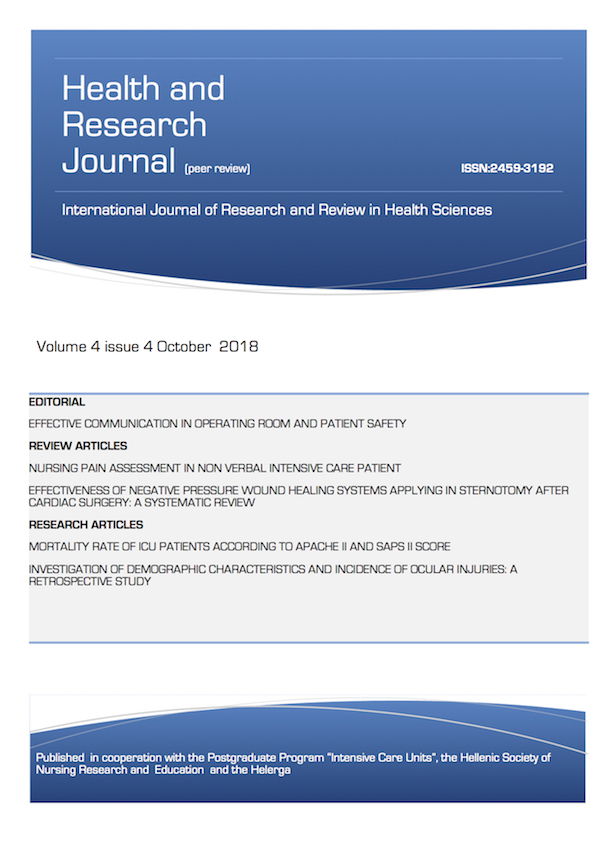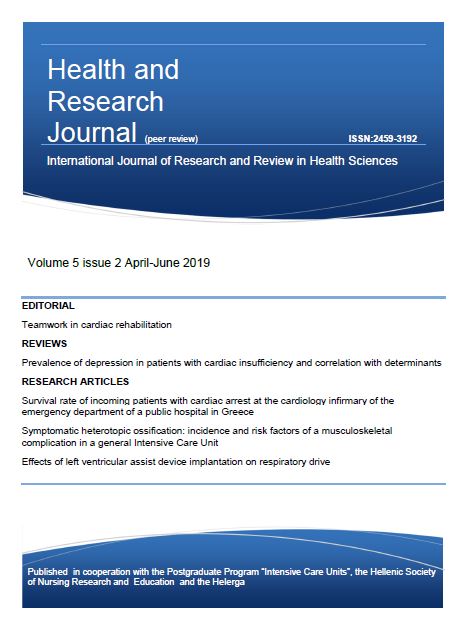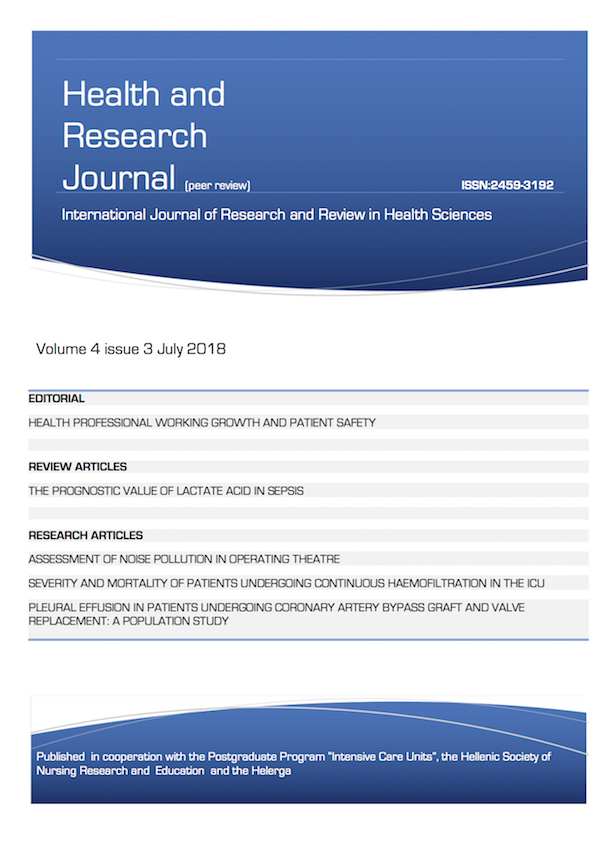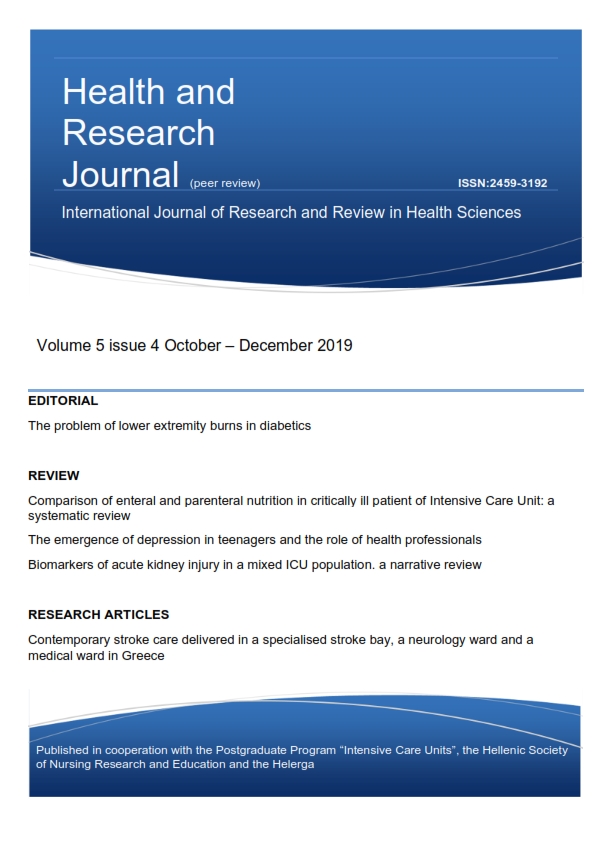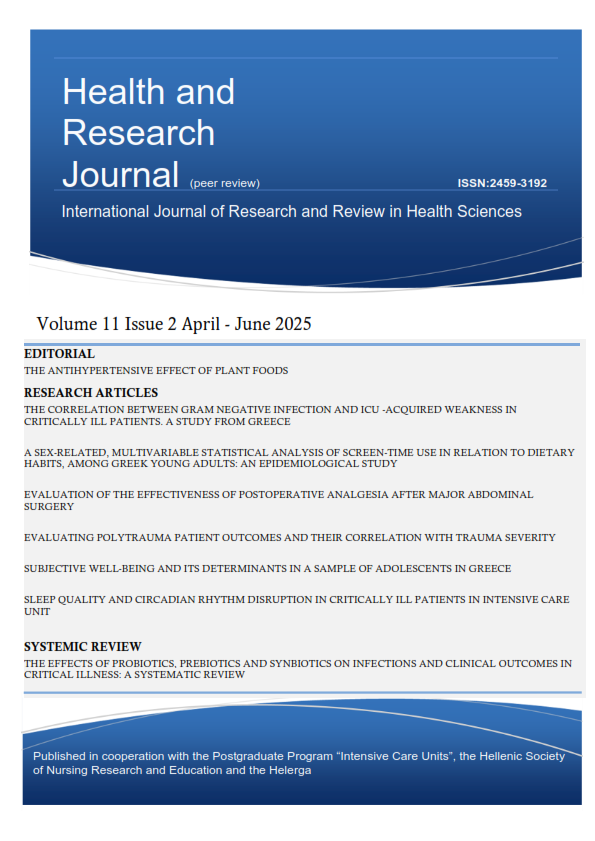Outcome after Intravenous Thhrombolysis in patients with Acute Ischemic Stroke
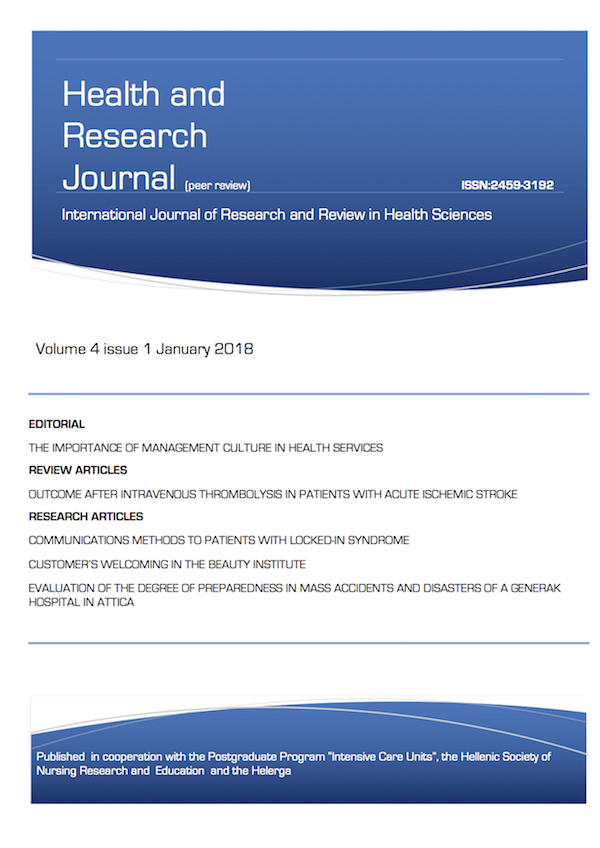
Abstract
Introduction: Vascular disorders represent a major cause of mortality worldwide, with ischemic stroke to be the second cause of mortality, after coronary artery disease.
Aim: The aim of the present review was to investigate the contribution of thrombolysis in the outcome of patients with ischemic stroke.
Material and Method: This is a systemic review of the literature. The sources of the literature were the databases EBSCO HOST, Elsevier Science Direct, PubMed, Medline, CINAHL, and Google Scholar.No time limit was set. The
following keywords were used: ischemic stroke, thrombolysis, infarction, outcome, time window, side effects, benefits, alteplase, etiology, diagnosis, treatment.
Results: Three multicenter studies were found to meet the inclusion criteria, the NINDS trial, the ECASS II and the STARS. Thrombolysis in ischemic stroke has been associated with a significantly lower mortality, fewer intracranial hemorrhages and improved neurological outcome when administered in less than 3 hours.
Conclusions: The therapeutic benefits of alteplase reduced with time, while it has been determined that after 4.5 hours from the onset of symptoms of ischemic stroke has a significant benefit.
Article Details
- How to Cite
-
Mallisova, E., Dokoutsidou, H., Kalogianni, A., & Vasilopoulos, G. (2019). Outcome after Intravenous Thhrombolysis in patients with Acute Ischemic Stroke. Health & Research Journal, 4(1), 4–20. https://doi.org/10.12681/healthresj.19633
- Section
- Reviews
Copyright notice:
Authors retain copyright of their work and grant the Health and Research Journal the right of first publication.
License:
Articles are published under the Creative Commons Attribution 4.0 International License (CC BY 4.0). This license permits use, sharing, adaptation, distribution, and reproduction in any medium or format, including for commercial purposes, provided that appropriate credit is given to the author(s) and the original publication in this journal, a link to the license is provided, and any changes are indicated.
Attribution requirement:
Any reuse must include the article citation and DOI (where available), and indicate if changes were made.



